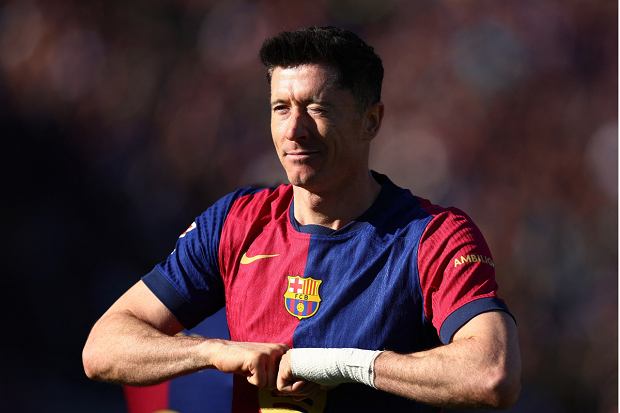Trump: ‘I Need the Kind of Generals That Hitler Had’
The Republican nominee’s preoccupation with dictators, and his disdain for the American military, is deepening. Donald Trump before military insiginia Mandel Ngan Donald Trump before military insiginia Produced by ElevenLabs and News Over Audio (NOA) using AI narration. Lee este artículo en español. To support The Atlantic’s journalism, please consider subscribing today. In April 2020,…
The Republican nominee’s preoccupation with dictators, and his disdain for the American military, is deepening.
Donald Trump before military insiginia
Mandel Ngan
Donald Trump before military insiginia
Produced by ElevenLabs and News Over Audio (NOA) using AI narration.
Lee este artículo en español.
To support The Atlantic’s journalism, please consider subscribing today.
In April 2020, Vanessa Guillén, a 20-year-old Army private, was bludgeoned to death by a fellow soldier at Fort Hood, in Texas. The killer, aided by his girlfriend, burned Guillén’s body. Guillén’s remains were discovered two months later, buried in a riverbank near the base, after a massive search.
Guillén, the daughter of Mexican immigrants, grew up in Houston, and her murder sparked outrage across Texas and beyond. Fort Hood had become known as a particularly perilous assignment for female soldiers, and members of Congress took up the cause of reform. Shortly after her remains were discovered, President Donald Trump himself invited the Guillén family to the White House. With Guillén’s mother seated beside him, Trump spent 25 minutes with the family as television cameras recorded the scene.
In the meeting, Trump maintained a dignified posture and expressed sympathy to Guillén’s mother. “I saw what happened to your daughter Vanessa, who was a spectacular person, and respected and loved by everybody, including in the military,” Trump said. Later in the conversation, he made a promise: “If I can help you out with the funeral, I’ll help—I’ll help you with that,” he said. “I’ll help you out. Financially, I’ll help you.”
Natalie Khawam, the family’s attorney, responded, “I think the military will be paying—taking care of it.” Trump replied, “Good. They’ll do a military. That’s good. If you need help, I’ll help you out.” Later, a reporter covering the meeting asked Trump, “Have you offered to do that for other families before?” Trump responded, “I have. I have. Personally. I have to do it personally. I can’t do it through government.” The reporter then asked: “So you’ve written checks to help for other families before this?” Trump turned to the family, still present, and said, “I have, I have, because some families need help … Maybe you don’t need help, from a financial standpoint. I have no idea what—I just think it’s a horrific thing that happened. And if you did need help, I’m going to—I’ll be there to help you.”
This article was featured in the One Story to Read Today newsletter. Sign up for it here.
A public memorial service was held in Houston two weeks after the White House meeting. It was followed by a private funeral and burial in a local cemetery, attended by, among others, the mayor of Houston and the city’s police chief. Highways were shut down, and mourners lined the streets.
Five months later, the secretary of the Army, Ryan McCarthy, announced the results of an investigation. McCarthy cited numerous “leadership failures” at Fort Hood and relieved or suspended several officers, including the base’s commanding general. In a press conference, McCarthy said that the murder “shocked our conscience” and “forced us to take a critical look at our systems, our policies, and ourselves.”
According to a person close to Trump at the time, the president was agitated by McCarthy’s comments and raised questions about the severity of the punishments dispensed to senior officers and noncommissioned officers.
In an Oval Office meeting on December 4, 2020, officials gathered to discuss a separate national-security issue. Toward the end of the discussion, Trump asked for an update on the McCarthy investigation. Christopher Miller, the acting secretary of defense (Trump had fired his predecessor, Mark Esper, three weeks earlier, writing in a tweet, “Mark Esper has been terminated”), was in attendance, along with Miller’s chief of staff, Kash Patel. At a certain point, according to two people present at the meeting, Trump asked, “Did they bill us for the funeral? What did it cost?”
According to attendees, and to contemporaneous notes of the meeting taken by a participant, an aide answered: Yes, we received a bill; the funeral cost $60,000.
Trump became angry. “It doesn’t cost 60,000 bucks to bury a fucking Mexican!” He turned to his chief of staff, Mark Meadows, and issued an order: “Don’t pay it!” Later that day, he was still agitated. “Can you believe it?” he said, according to a witness. “Fucking people, trying to rip me off.”
Khawam, the family attorney, told me she sent the bill to the White House, but no money was ever received by the family from Trump. Some of the costs, Khawam said, were covered by the Army (which offered, she said, to allow Guillén to be buried at Arlington National Cemetery) and some were covered by donations. Ultimately, Guillén was buried in Houston.
Shortly after I emailed a series of questions to a Trump spokesperson, Alex Pfeiffer, I received an email from Khawam, who asked me to publish a statement from Mayra Guillén, Vanessa’s sister. Pfeiffer then emailed me the same statement. “I am beyond grateful for all the support President Donald Trump showed our family during a trying time,” the statement reads. “I witnessed firsthand how President Trump honors our nation’s heroes’ service. We are grateful for everything he has done and continues to do to support our troops.”
Pfeiffer told me that he did not write that statement, and emailed me a series of denials. Regarding Trump’s “fucking Mexican” comment, Pfeiffer wrote: “President Donald Trump never said that. This is an outrageous lie from The Atlantic two weeks before the election.” He provided statements from Patel and a spokesman for Meadows, who denied having heard Trump make the statement. Via Pfeiffer, Meadows’s spokesman also denied that Trump had ordered Meadows not to pay for the funeral.
The statement from Patel that Pfeiffer sent me said: “As someone who was present in the room with President Trump, he strongly urged that Spc. Vanessa Guillen’s grieving family should not have to bear the cost of any funeral arrangements, even offering to personally pay himself in order to honor her life and sacrifice. In addition, President Trump was able to have the Department of Defense designate her death as occurring ‘in the line of duty,’ which gave her full military honors and provided her family access to benefits, services, and complete financial assistance.”
The personal qualities displayed by Trump in his reaction to the cost of the Guillén funeral—contempt, rage, parsimony, racism—hardly surprised his inner circle. Trump has frequently voiced his disdain for those who serve in the military and for their devotion to duty, honor, and sacrifice. Former generals who have worked for Trump say that the sole military virtue he prizes is obedience. As his presidency drew to a close, and in the years since, he has become more and more interested in the advantages of dictatorship, and the absolute control over the military that he believes it would deliver. “I need the kind of generals that Hitler had,” Trump said in a private conversation in the White House, according to two people who heard him say this. “People who were totally loyal to him, that follow orders.” (“This is absolutely false,” Pfeiffer wrote in an email. “President Trump never said this.”)
A desire to force U.S. military leaders to be obedient to him and not the Constitution is one of the constant themes of Trump’s military-related discourse. Former officials have also cited other recurring themes: his denigration of military service, his ignorance of the provisions of the Uniform Code of Military Justice, his admiration for brutality and anti-democratic norms of behavior, and his contempt for wounded veterans and for soldiers who fell in battle.
Retired General Barry McCaffrey, a decorated Vietnam veteran, told me that Trump does not comprehend such traditional military virtues as honor and self-sacrifice. “The military is a foreign country to him. He doesn’t understand the customs or codes,” McCaffrey said. “It doesn’t penetrate. It starts with the fact that he thinks it’s foolish to do anything that doesn’t directly benefit himself.”
I’ve been interested in Trump’s understanding of military affairs for nearly a decade. At first, it was cognitive dissonance that drew me to the subject—according to my previous understanding of American political physics, Trump’s disparagement of the military, and in particular his obsessive criticism of the war record of the late Senator John McCain, should have profoundly alienated Republican voters, if not Americans generally. And in part my interest grew from the absolute novelty of Trump’s thinking. This country had never seen, to the best of my knowledge, a national political figure who insulted veterans, wounded warriors, and the fallen with metronomic regularity.
Today—two weeks before an election that could see Trump return to the White House—I’m most interested in his evident desire to wield military power, and power over the military, in the manner of Hitler and other dictators.
Trump’s singularly corrosive approach to military tradition was in evidence as recently as August, when he described the Medal of Honor, the nation’s top award for heroism and selflessness in combat, as inferior to the Medal of Freedom, which is awarded to civilians for career achievement. During a campaign speech, he described Medal of Honor recipients as “either in very bad shape because they’ve been hit so many times by bullets or they’re dead,” prompting the Veterans of Foreign Wars to issue a condemnation: “These asinine comments not only diminish the significance of our nation’s highest award for valor, but also crassly characterizes the sacrifices of those who have risked their lives above and beyond the call of duty.” Later in August, Trump caused controversy by violating federal regulations prohibiting the politicization of military cemeteries, after a campaign visit to Arlington in which he gave a smiling thumbs-up while standing behind gravestones of fallen American soldiers.
His Medal of Honor comments are of a piece with his expressed desire to receive a Purple Heart without being wounded. He has also equated business success to battlefield heroism. In the summer of 2016, Khizr Khan, the father of a 27-year-old Army captain who had been killed in Iraq, told the Democratic National Convention that Trump has “sacrificed nothing.” In response, Trump disparaged the Khan family and said, “I think I’ve made a lot of sacrifices. I work very, very hard. I’ve created thousands and thousands of jobs, tens of thousands of jobs, built great structures.”
One former Trump-administration Cabinet secretary told me of a conversation he’d had with Trump during his time in office about the Vietnam War. Trump famously escaped the draft by claiming that his feet were afflicted with bone spurs. (“I had a doctor that gave me a letter—a very strong letter on the heels,” Trump told The New York Times in 2016.) Once, when the subject of aging Vietnam veterans came up in conversation, Trump offered this observation to the Cabinet official: “Vietnam would have been a waste of time for me. Only suckers went to Vietnam.”
In 1997, Trump told the radio host Howard Stern that avoiding sexually transmitted diseases was “my personal Vietnam. I feel like a great and very brave soldier.” This was not the only time Trump has compared his sexual exploits and political challenges to military service. Last year, at a speech before a group of New York Republicans, while discussing the fallout from the release of the Access Hollywood tape, he said, “I went onto that (debate) stage just a few days later and a general, who’s a fantastic general, actually said to me, ‘Sir, I’ve been on the battlefield. Men have gone down on my left and on my right. I stood on hills where soldiers were killed. But I believe the bravest thing I’ve ever seen was the night you went onto that stage with Hillary Clinton after what happened.’” I asked Trump-campaign officials to provide the name of the general who allegedly said this. Pfeiffer, the campaign spokesman, said, “This is a true story and there is no good reason to give the name of an honorable man to The Atlantic so you can smear him.”
In their book, The Divider: Trump in the White House, Peter Baker and Susan Glasser reported that Trump asked John Kelly, his chief of staff at the time, “Why can’t you be like the German generals?” Trump, at various points, had grown frustrated with military officials he deemed disloyal and disobedient. (Throughout the course of his presidency, Trump referred to flag officers as “my generals.”) According to Baker and Glasser, Kelly explained to Trump that German generals “tried to kill Hitler three times and almost pulled it off.” This correction did not move Trump to reconsider his view: “No, no, no, they were totally loyal to him,” the president responded.
This week, I asked Kelly about their exchange. He told me that when Trump raised the subject of “German generals,” Kelly responded by asking, “‘Do you mean Bismarck’s generals?’” He went on: “I mean, I knew he didn’t know who Bismarck was, or about the Franco-Prussian War. I said, ‘Do you mean the kaiser’s generals? Surely you can’t mean Hitler’s generals? And he said, ‘Yeah, yeah, Hitler’s generals.’ I explained to him that Rommel had to commit suicide after taking part in a plot against Hitler.” Kelly told me Trump was not acquainted with Rommel.
From the November 2023 issue: The patriot
Baker and Glasser also reported that Mark Milley, the former chairman of the Joint Chiefs of Staff, feared that Trump’s “‘Hitler-like’ embrace of the big lie about the election would prompt the president to seek out a ‘Reichstag moment.’”
Kelly—a retired Marine general who, as a young man, had volunteered to serve in Vietnam despite actually suffering from bone spurs—said in an interview for the CNN reporter Jim Sciutto’s book, The Return of Great Powers, that Trump praised aspects of Hitler’s leadership. “He said, ‘Well, but Hitler did some good things,’” Kelly recalled. “I said, ‘Well, what?’ And he said, ‘Well, (Hitler) rebuilt the economy.’ But what did he do with that rebuilt economy? He turned it against his own people and against the world.” Kelly admonished Trump: “I said, ‘Sir, you can never say anything good about the guy. Nothing.’”
This wasn’t the only time Kelly felt compelled to instruct Trump on military history. In 2018, Trump asked Kelly to explain who “the good guys” were in World War I. Kelly responded by explaining a simple rule: Presidents should, as a matter of politics and policy, remember that the “good guys” in any given conflict are the countries allied with the United States. Despite Trump’s lack of historical knowledge, he has been on record as saying that he knew more than his generals about warfare. He told 60 Minutes in 2018 that he knew more about NATO than James Mattis, his secretary of defense at the time, a retired four-star Marine general who had served as a NATO official. Trump also said, on a separate occasion, that it was he, not Mattis, who had “captured” the Islamic State.
As president, Trump evinced extreme sensitivity to criticism from retired flag officers; at one point, he proposed calling back to active duty Admiral William McRaven and General Stanley McChrystal, two highly regarded Special Operations leaders who had become critical of Trump, so that they could be court-martialed. Esper, who was the defense secretary at the time, wrote in his memoir that he and Milley talked Trump out of the plan. (Asked about criticism from McRaven, who oversaw the raid that killed Osama bin Laden, Trump responded by calling him a “Hillary Clinton backer and an Obama backer” and said, “Wouldn’t it have been nice if we got Osama bin Laden a lot sooner than that?”)
Trump has responded incredulously when told that American military personnel swear an oath to the Constitution, not to the president. According to the New York Times reporter Michael S. Schmidt’s recent book, Donald Trump v. the United States, Trump asked Kelly, “Do you really believe you’re not loyal to me?” Kelly answered, “I’m certainly part of the administration, but my ultimate loyalty is to the rule of law.” Trump also publicly floated the idea of “termination of all rules, regulations, and articles, even those found in the Constitution,” as part of the effort to overturn the 2020 presidential election and keep himself in power.
On separate occasions in 2020, Trump held private conversations in the White House with national-security officials about the George Floyd protests. “The Chinese generals would know what to do,” he said, according to former officials who described the conversations to me, referring to the leaders of the People’s Liberation Army, which carried out the Tiananmen Square massacre in 1989. (Pfeiffer denied that Trump said this.) Trump’s desire to deploy U.S. troops against American citizens is well documented. During the nerve-racking period of social unrest following Floyd’s death, Trump asked Milley and Esper, a West Point graduate and former infantry officer, if the Army could shoot protesters. “Trump seemed unable to think straight and calmly,” Esper wrote in his memoir. “The protests and violence had him so enraged that he was willing to send in active-duty forces to put down the protesters. Worse yet, he suggested we shoot them. I wondered about his sense of history, of propriety, and of his oath to the Constitution.” Esper told National Public Radio in 2022, “We reached that point in the conversation where he looked frankly at General Milley, and said, ‘Can’t you just shoot them, just shoot them in the legs or something?’” When defense officials argued against Trump’s desire, the president screamed, according to witnesses, “You are all fucking losers!”
Trump has often expressed his esteem for the type of power wielded by such autocrats as the Chinese leader Xi Jinping; his admiration, even jealousy, of Vladimir Putin is well known. In recent days, he has signaled that, should he win reelection in November, he would like to govern in the manner of these dictators—he has said explicitly that he would like to be a dictator for a day on his first day back in the White House—and he has threatened to, among other things, unleash the military on “radical-left lunatics.” (One of his four former national security advisers, John Bolton, wrote in his memoir, “It is a close contest between Putin and Xi Jinping who would be happiest to see Trump back in office.”)
Military leaders have condemned Trump for possessing autocratic tendencies. At his retirement ceremony last year, Milley said, “We don’t take an oath to a king, or a queen, or to a tyrant or dictator, and we don’t take an oath to a wannabe dictator … We take an oath to the Constitution, and we take an oath to the idea that is America, and we’re willing to die to protect it.” Over the past several years, Milley has privately told several interlocutors that he believed Trump to be a fascist. Many other leaders have also been shocked by Trump’s desire for revenge against his domestic critics. At the height of the Floyd protests, Mattis wrote, “When I joined the military, some 50 years ago, I swore an oath to support and defend the Constitution. Never did I dream that troops taking that same oath would be ordered under any circumstance to violate the Constitutional rights of their fellow citizens.”
Trump’s frustration with American military leaders led him to disparage them regularly. In their book A Very Stable Genius, Carol Leonnig and Philip Rucker, both of The Washington Post, reported that in 2017, during a meeting at the Pentagon, Trump screamed at a group of generals: “I wouldn’t go to war wi






